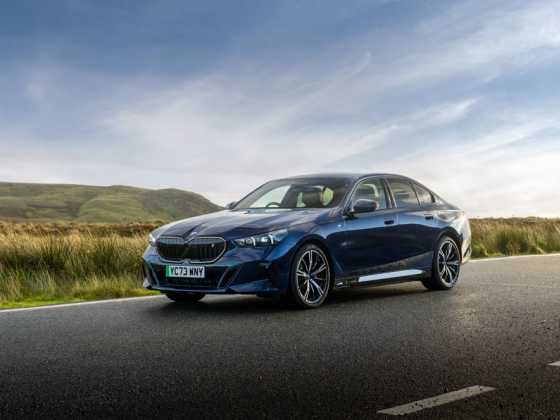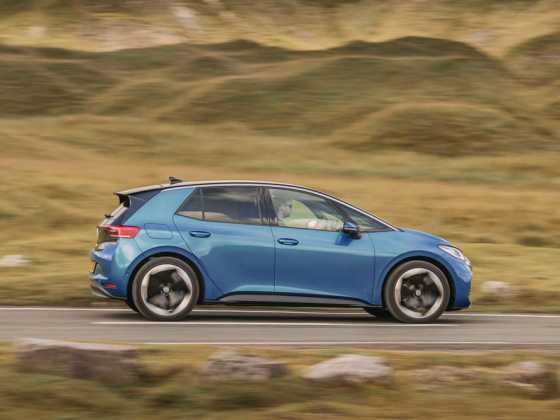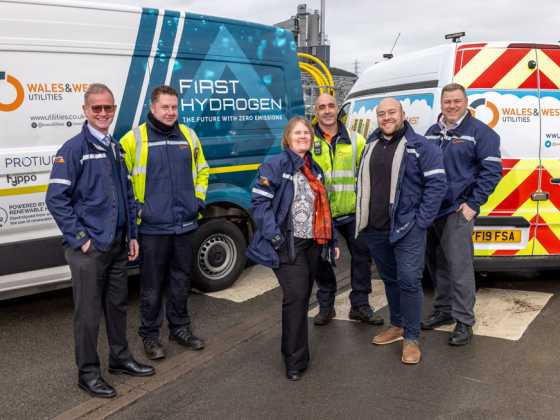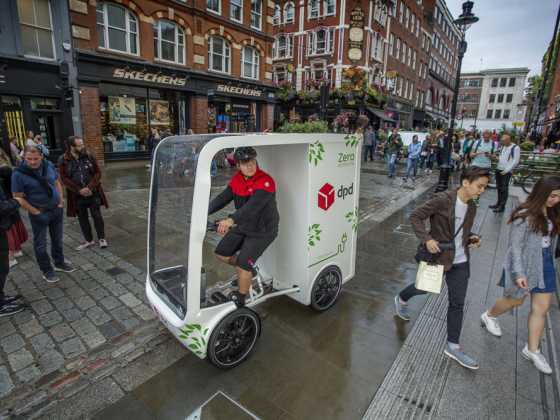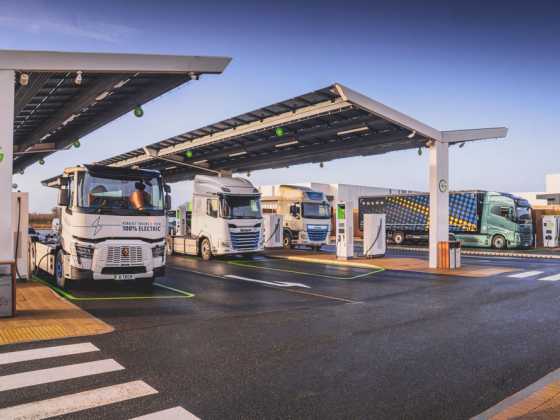Carbon scheme heralds a new age for logistics
A voluntary carbon reduction scheme will allow the logistics sector to measure and improve its carbon footprint for the first time. The Freight Transport Association's Rachael Dillon explains how it works
 Tackling climate change is not a responsibility the logistics sector takes lightly, despite the rather unjust ‘dirty, smelly, trucks’ public image that is still so pervasive. A voluntary carbon reduction scheme spearheaded by the Freight Transport Association (FTA) will, for the first time, allow the sector to measure its own carbon footprint and fill a CO2 policy vacuum that has not helped the environment and has actually hindered the industry’s environmental progress.
Tackling climate change is not a responsibility the logistics sector takes lightly, despite the rather unjust ‘dirty, smelly, trucks’ public image that is still so pervasive. A voluntary carbon reduction scheme spearheaded by the Freight Transport Association (FTA) will, for the first time, allow the sector to measure its own carbon footprint and fill a CO2 policy vacuum that has not helped the environment and has actually hindered the industry’s environmental progress.
Climate change is simply too big an issue to ignore; its devastating impact on the environment and, more peripherally, on such things as agriculture and travel has become a staple fodder in the news.
The apparent absence of meaningful international accord over how to tackle climate change means it is more important than ever that the logistics sector grasps the carbon emissions nettle itself. After all, freight and logistics movements are responsible for around 30 per cent of transport emissions.
Readers will already be aware that the logistics sector takes its environmental responsibilities very seriously; investing millions in the latest, greenest technology every year. Indeed, the will within the industry to take responsibility for its impact on the environment is palpable and demonstrated by the sheer number of FTA members that have attended its carbon reduction seminars and events in recent years.
JOINING TOGETHER TO SHAPE POLICY
It was with a fair degree of optimism, then, that FTA launched its Logistics Carbon Reduction Scheme (LCRS) earlier in the year. It is hoped that this voluntary scheme, which is open to all commercial vehicle operators to join, will provide the roadmap for future transport-related carbon reduction policy in the UK and beyond.
This hope is particularly valid for an industry that has suffered from unfair, damaging and pointless fuel duty increases – the traditional government rejoinder to tackling carbon emissions in the transport sector. This has proved singularly ineffective in curbing freight demand as, quite simply, trucks need to be driven and when it comes to influencing driving behaviour, raising fuel tax serves only to reduce the amount of money that can be invested in cleaner and greener technology. This point is made all the more pressing as companies face severe budget cuts and local authorities face up to a brave new era of retrenchment.
Clearly, we need to start making intelligent decisions if we want to make a meaningful reduction in our carbon output without doing irreparable damage to British business along the way. But before we can engage with policy makers to reduce our carbon footprint, we must first understand the scale of the job in hand.
BENCHMARKING
To do so we need to accurately record an entire industry’s carbon emissions. For an industry that comprises relatively small units, like vans and HGVs, this could appear to be a relatively onerous undertaking; currently, there are around 400,000 trucks and over three million vans operating in the UK. Without a doubt, to accurately measure the collective impact of all these vehicles requires wholesale buy-in from the sector itself. This is precisely what LCRS aims to achieve.
LCRS will initially focus on CO2 emitted from diesel fuel, with members asked to provide diesel usage statistics. Every one of the scheme’s 40 members – a number set to grow as momentum for the scheme gathers – are obliged to submit both annual and quarterly fuel data that is then converted to CO2 equivalent emissions and aggregated into one carbon account.
To ensure the group remains credible, FTA will audit all members of the scheme on an annual basis to ensure the data is being recorded by each member correctly. Evidently much more than an exercise in curiosity, LCRS is a serious attempt to benchmark the performance of an entire industry, one that already works hard to mitigate its carbon output. Most importantly, the LCRS looks to provide government with a robust dataset on which to base future carbon reduction policy.
One of the LCRS’s greatest features is its adaptability; it provides a simple and cost-effective way for businesses and organisations of all sizes to use the same measurement techniques to measure carbon dioxide emissions from logistics activities and report them on a common basis. As the leading multi-modal transport trade body, FTA is naturally keen to extend the focus from carbon dioxide emissions arising from the combustion of fuel in commercial vehicles – the largest source of emissions in the logistics sector – to the other modes and activities in the supply chain, including rail freight, shipping and aviation, manual handling and warehousing.
COMMITTED TO THE CAUSE
Already the scheme represents the activities of almost 40,000 commercial vehicles, a fairly representative chunk of the UK total. Data collection to establish a baseline of emissions has already started and work is currently underway to agree a reduction target. In addition to a reduced carbon dioxide figure, the reduction target will be expressed in terms of the required improvements in key logistics parameters necessary to bring it about, such as empty running and vehicle fuel efficiency.
Impressive initial take up of the scheme demonstrates the transport sector’s desire to limit its impact on the environment and its will to improve its environmental performance. It is, after all, linked to various powerful forces: increasingly high customer service levels, a more competitive marketplace, the importance of corporate social responsibility to companies looking to outsource their transport function, and the desire to reduce overheads, such as transport costs. Clearly, the logistics sector wants to be leaner, greener and cleaner and if the logistics community can pull together to reduce its carbon emissions it can exert a real influence on future government policy and benchmark its collective performance.
And why shouldn’t it succeed? – It already has a history of over achievement in this field as demonstrated in a recent report by Heriot Watt University which revealed that CO2 emissions from the logistics industry had risen by just ten per cent between 1990 and 2005, 20 per cent less than previous government estimates.
The LCRS is open to businesses of all sizes, regardless of FTA membership and it has already been backed by some of FTA’s leading members, data from which will be reported back to the government in early 2011. As time passes it is hoped that the momentum will build making the Logistics Carbon Reduction Scheme a voice that can be trusted and cannot be ignored.
Membership of the Scheme remains open to all commercial vehicle operators to join and an application pack can be obtained from Rachael Dillon, FTA’s Climate Change Policy Manager, at rdillon@fta.co.uk.

